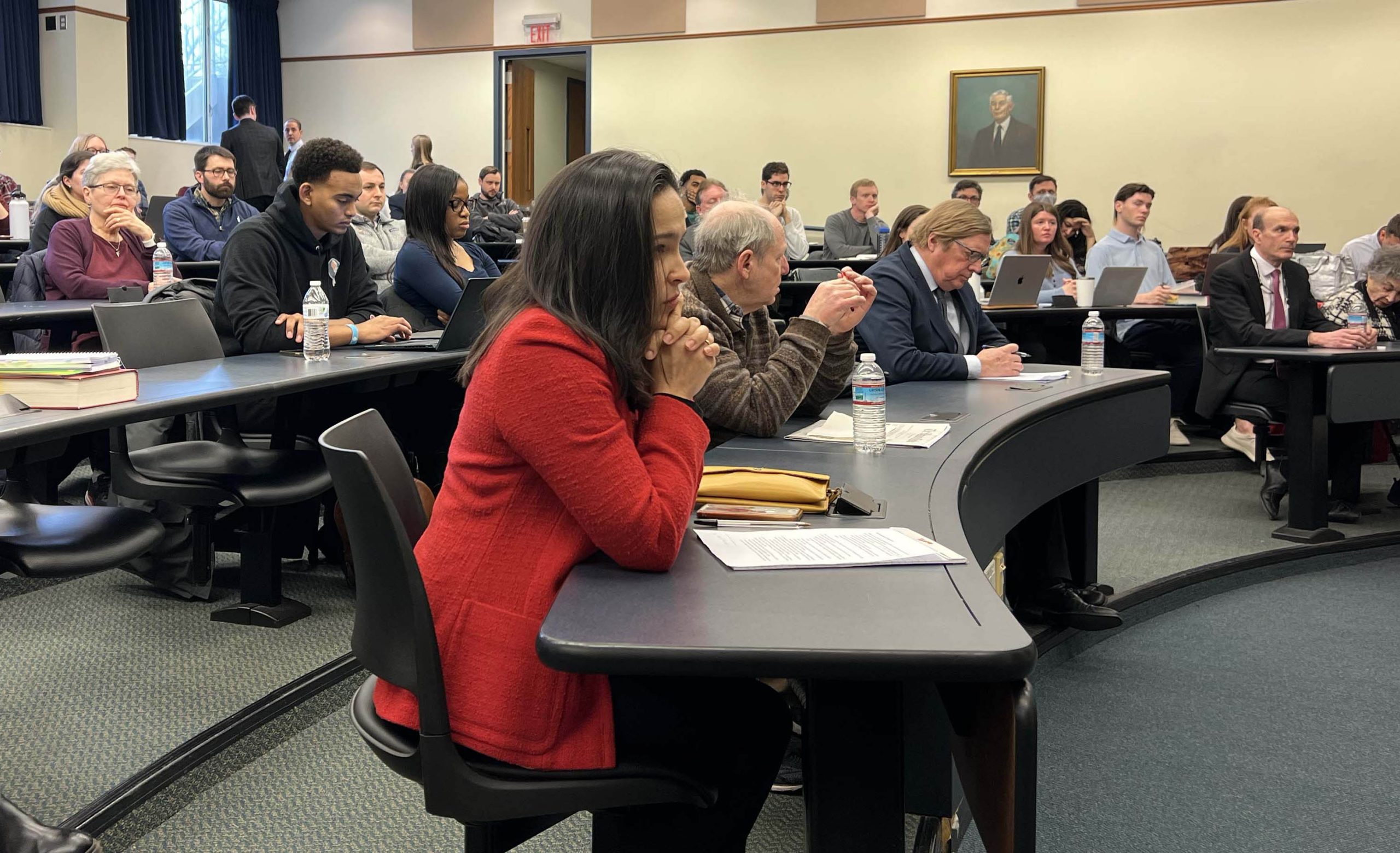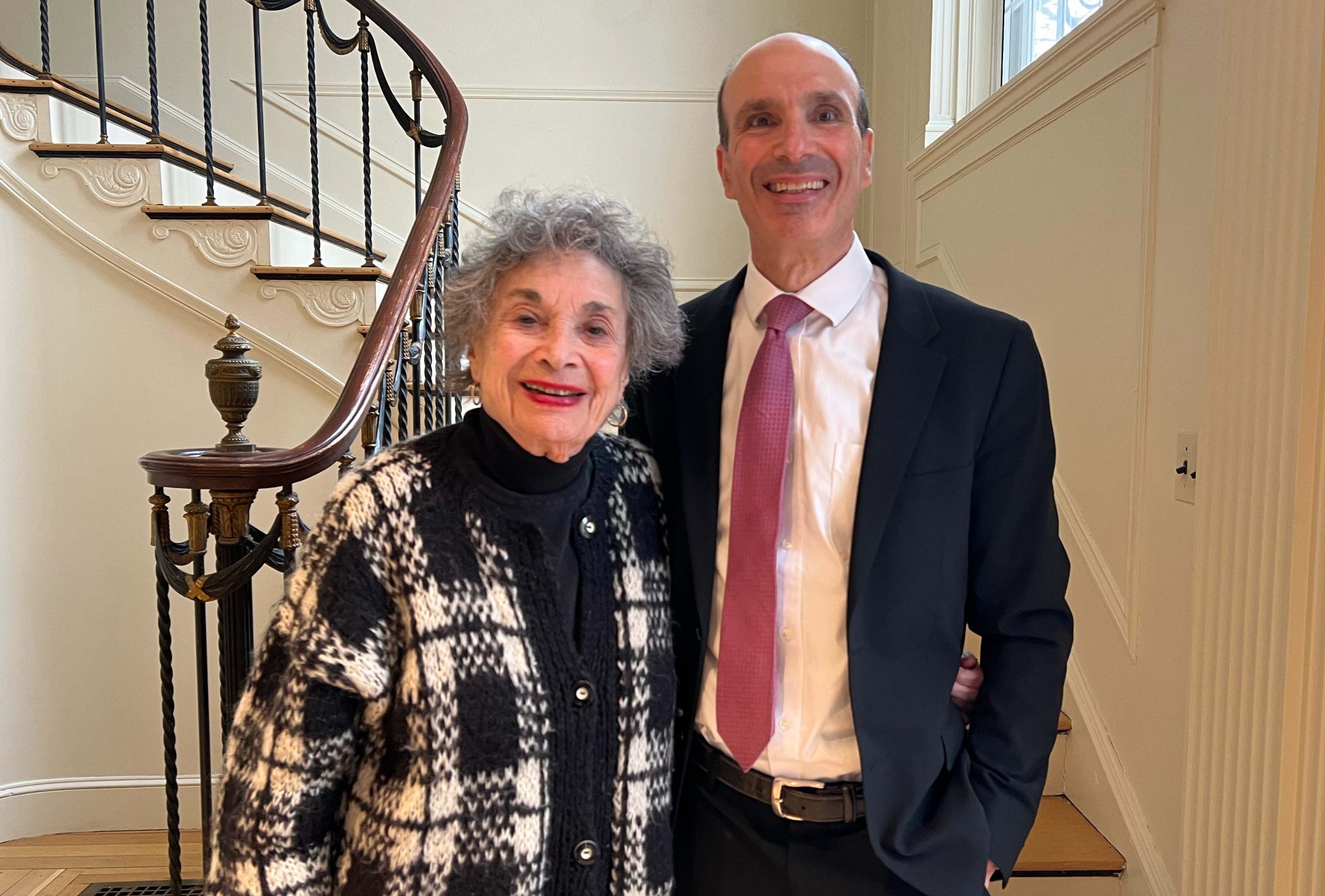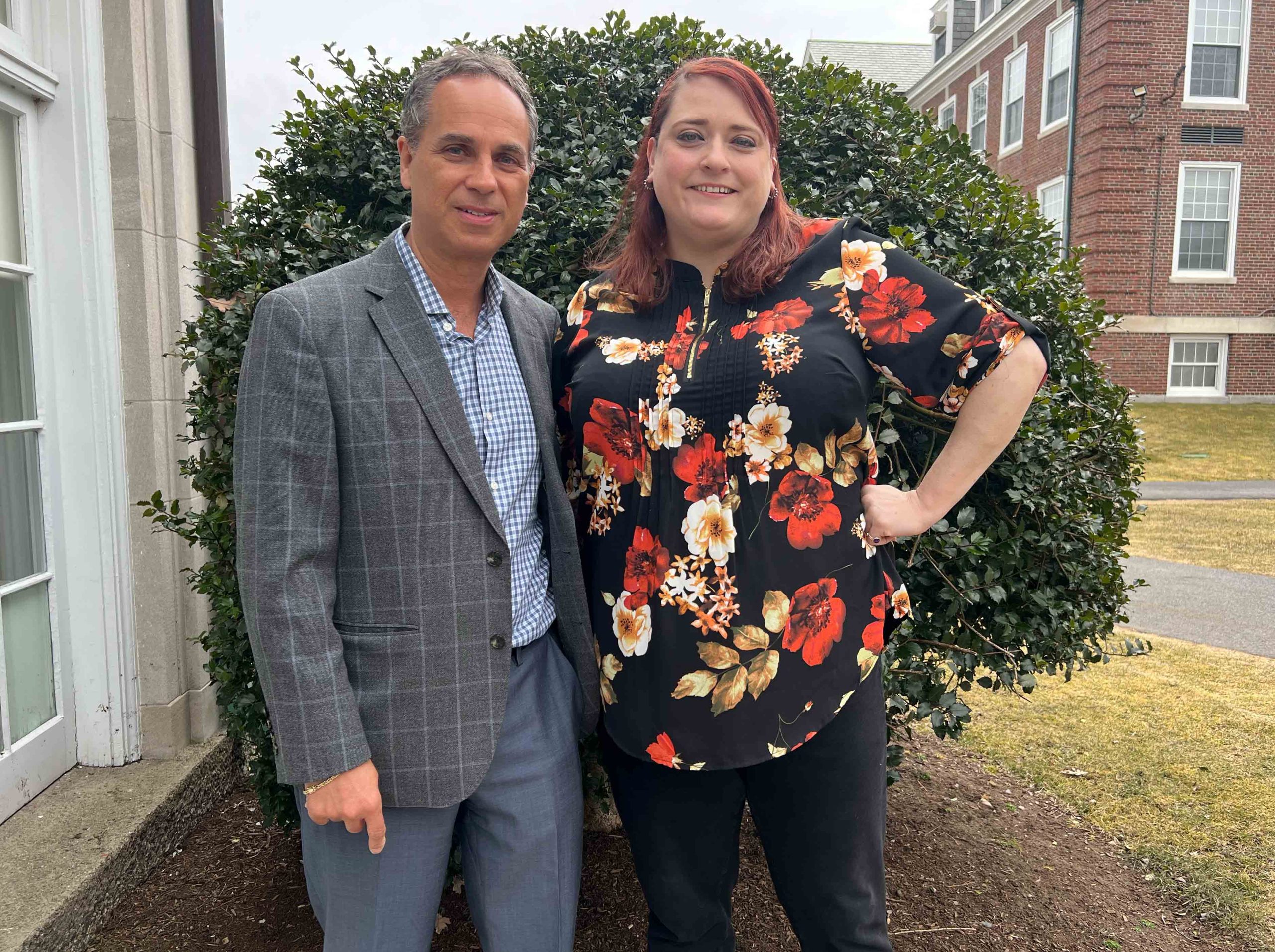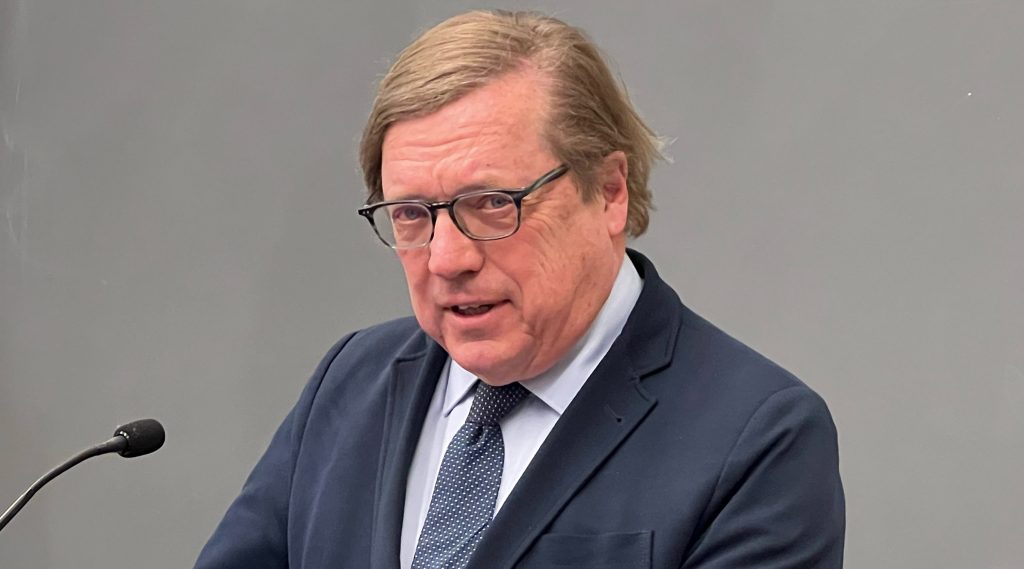A presentation on March 13 by former ambassador David Scheffer was prescient. He came to discuss the ongoing war in Ukraine and the scores of human rights violations alleged by the international community. Mere days later, the International Criminal Court (ICC) issued an arrest warrant for Russian President Vladimir Putin on charge of war crimes.
Scheffer was at BC Law to deliver the 2023 Owen M. Kupferschmid Memorial Lecture, hosted by the Holocaust Human Rights Project (HHRP), in remembrance of Kupferschmid, the BC Law alum responsible for founding the organization. HHRP invites speakers with experience in international law to discuss accountability with regard to human rights violations abroad.
In 1997, Scheffer was appointed by President Clinton to the newly created position of US Ambassador-at-Large for War Crimes Issues, and acted as a special advisor to the State Department for war crimes and other atrocities in international areas of conflict. While serving in that position, Scheffer assisted in coordinating the US response to the 1994 Rwandan genocide and the human rights violations perpetrated by the Khmer Rouge in Cambodia during the 1970s, among other projects.
Scheffer’s began his talk by recognizing that “in the consciousness of all of those who read the news, there has been a revival of interest in international law. Such a blatant act of aggression against Ukraine raises all sorts of red flags, including manifest violations of the UN charter.”
The first international tribunals took place more than 75 years ago, when the Allied powers held the Nuremberg and Tokyo trials following WWII to prosecute war crimes that occurred during the conflict. In the decades that followed, however, interest in international law stagnated. That was, until the 1990s, when a number of international tribunals were established in part thanks to the efforts of Scheffer.
“In the last 30 years, there’s been a tremendous amount of structural building for international criminal justice,” he said. “Frankly, law schools didn’t teach it prior to the 1990s, and now it is a standard part of any curriculum.”
A major question for international law practitioners is whether the successful prosecutions of the last 30 years have had their intended deterrent effect on repeat offenses. Scheffer pointed to studies supporting a finding that extrajudicial violence and human rights violations diminished in countries like Kosovo and Bosnia following the ICC’s work there.
That said, Scheffer, currently a senior fellow of the Council on Foreign Relations and a professor of practice at Arizona State University, acknowledged that there is plenty of work still to be done: “There’s still an enormous amount of conflict and atrocities occurring globally,” he warned. Scheffer listed atrocities in Yemen, South Sudan, Central African Republic, the Tigray region of Ethiopia, North Korea, and China, where ethnic Uyghurs have been subject to internment in re-education camps, as possible avenues for prosecution in the future.
Scheffer has captured many of his experiences in his award-winning All the Missing Souls: A Personal History of the War Crimes Tribunals (Princeton, 2012) and The Sit Room: In the Theater of War and Peace (Oxford, 2019).
Preceding Scheffer’s talk, Bill Mandell ’86 took a moment to acknowledge those who’ve kept Kupferschmid’s initiative active for nearly four decades, among them family members of Kupferschmid—his mother Gene and brother Seth—and Elisabeth Ryan ’06, there in honor of her father Allan Ryan, an adjunct professor and invaluable supporter of HHRP who passed away in January.
Mandell recounted that In the 1980s, as director of the Department of Justice’s Office of Special Investigations (OSI), Ryan tracked down Nazis for war crimes. Kupferschmid reached out to Ryan to ask if OSI needed help with legal research, triggering Ryan’s longtime engagement with HHRP.
“Allan was a dedicated member of the Boston College Law School community for the past 40 years, helping students and the rest of the [Human] Rights Project advisors with honest and grounded advice and helpful and warm encouragement,” Mandell said.
The event was co-sponsored by another BC program handling global issues, the Center for Human Rights and International Justice.





